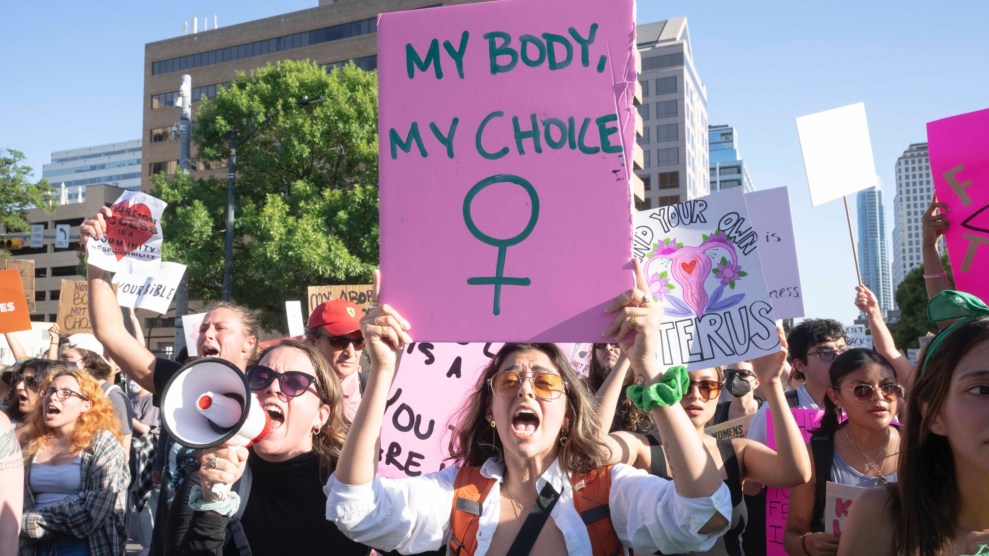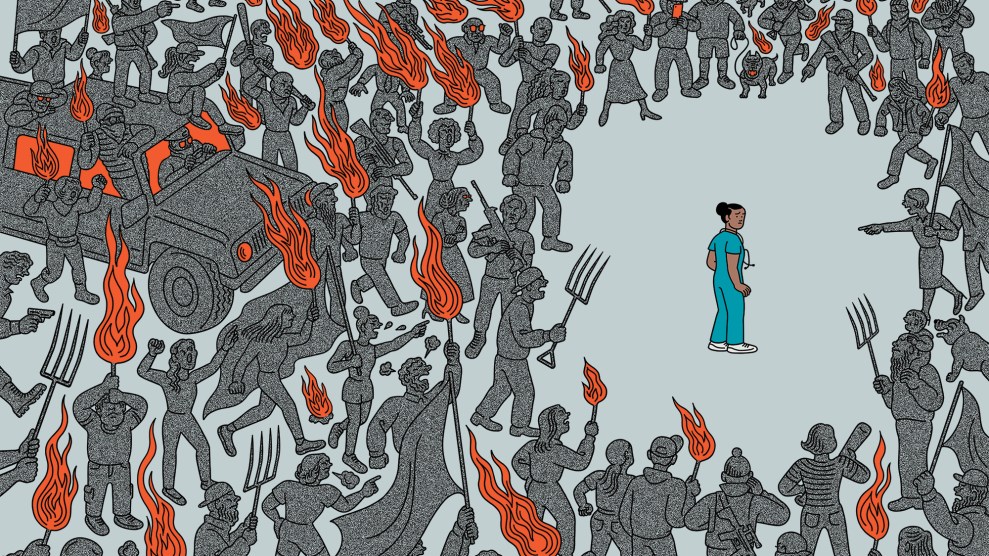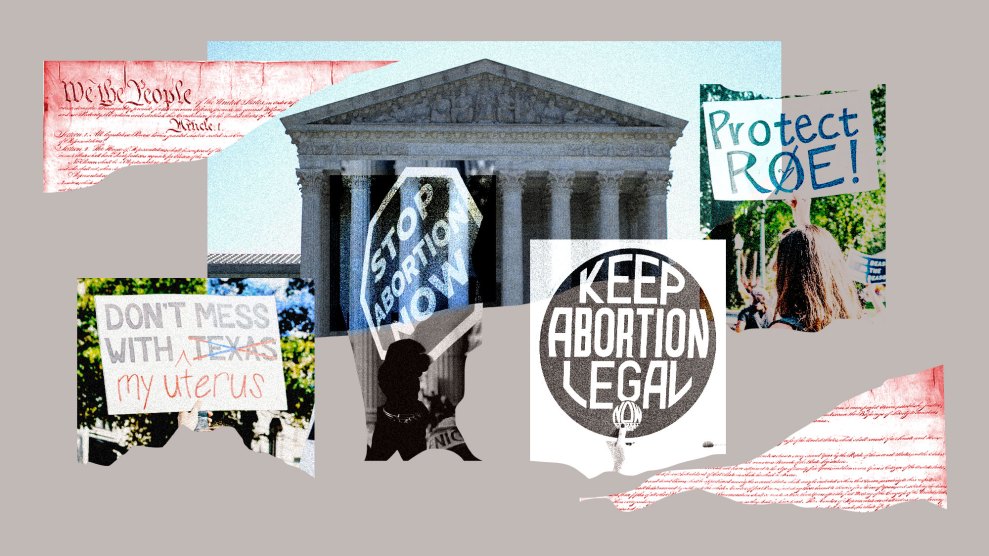
Protesters march in Austin after the Supreme Court ended the right to an abortion.Bob Daemmrich/Zuma
Late on Friday, a judge in Texas issued an pre-trial injunction limiting the reach of the state’s recent anti-abortion measures.
While Texas law technically allows ending a pregnancy in emergency, medically necessary situations, patients seeking care under that provision have been denied, as doctors fear fines, imprisonment, or the loss of their license for being involved in any kind of abortion. The judge clarified that a doctor can decide when their patient needs an emergency abortion, and held that the women who brought the suit with the assistance of the Center for Reproductive Rights had had a legal right to an abortion in Texas. Under the law, one plaintiff in the suit was denied an abortion and developed sepsis; another was forced to give birth to a non-viable fetus. Others opted to travel out of state for care.
Travis County district judge Jessica Mangrum also held that SB8, the state law that encourages Texas citizens to investigate and turn in people who seek or help enable an abortion, is unconstitutional because it violates a provision in the state’s bill of rights banning unreasonable fines and cruel and unusual punishment. Mother Jones‘s Pema Levy wrote about the law last year:
It allows vigilantes to piggyback on any cases brought under the bans and win civil suits with ample bounties. Vigilantes can also go after anyone involved in a suspected abortion without a prosecutor’s involvement, meaning that even in the state’s liberal enclaves where elected prosecutors have promised not to prosecute abortion cases, SB8 will allow individuals to become the enforcers… [U]nder SB8, scrutiny has been expanded and weaponized: When the law took effect, a Texas anti-abortion group set up a website for people to submit tips about abortions performed in violation of SB8 and promised to “do the rest.” The portal didn’t last, but it also wasn’t needed for the law to have its intended effect.
According to the Center for Reproductive Rights, the case, Zurawski v. State of Texas, was the first brought on behalf of women denied abortions after the US Supreme Court’s 2022 decision ending the federal constitutional right to abortion.
Mangrum’s injunction is set to last through the end of her deliberations in the case; the trial is slated to begin in March 2024.













